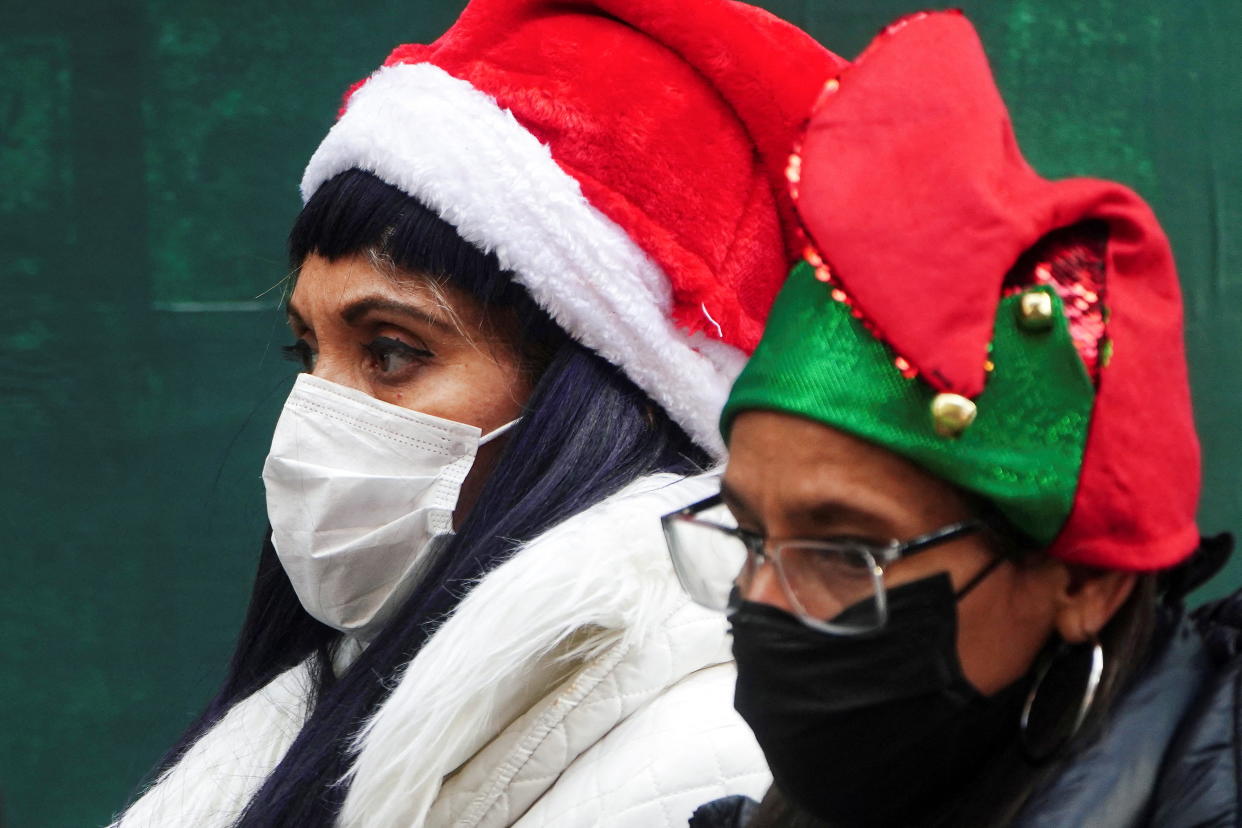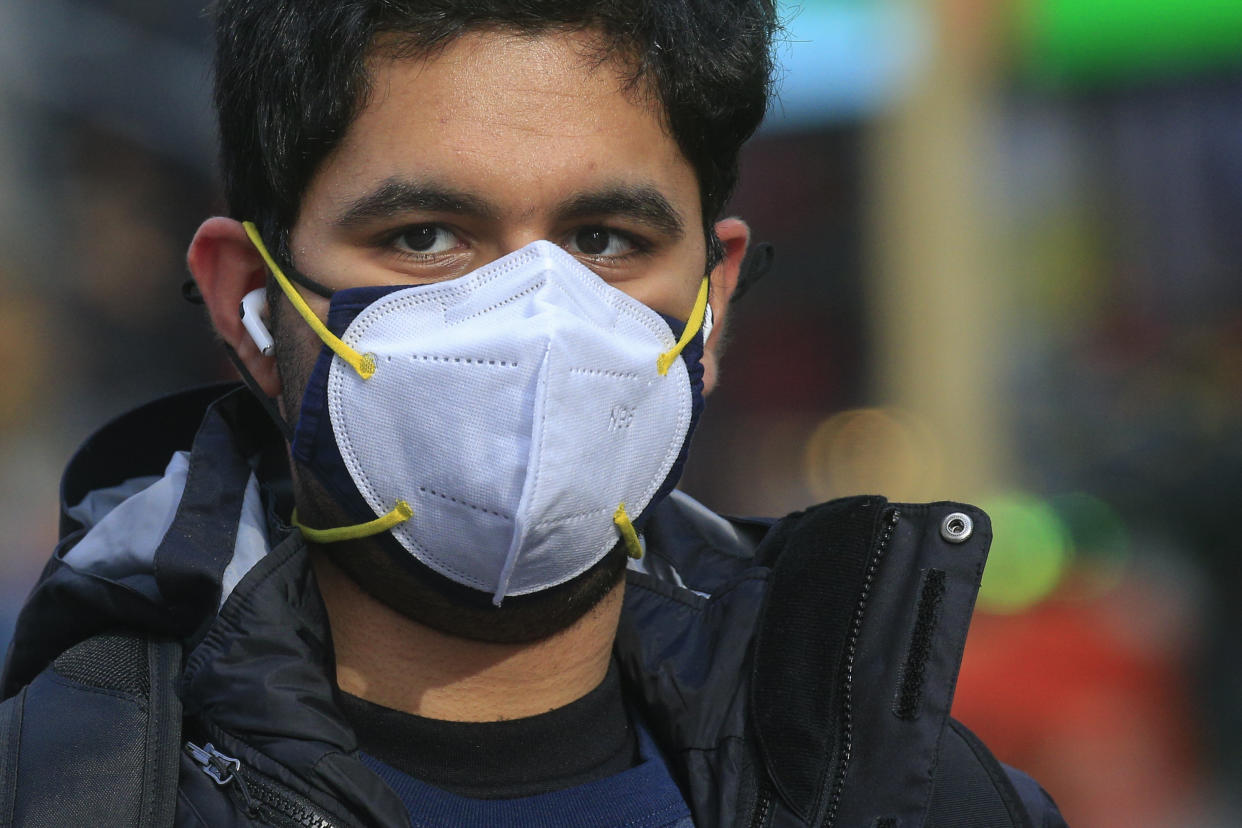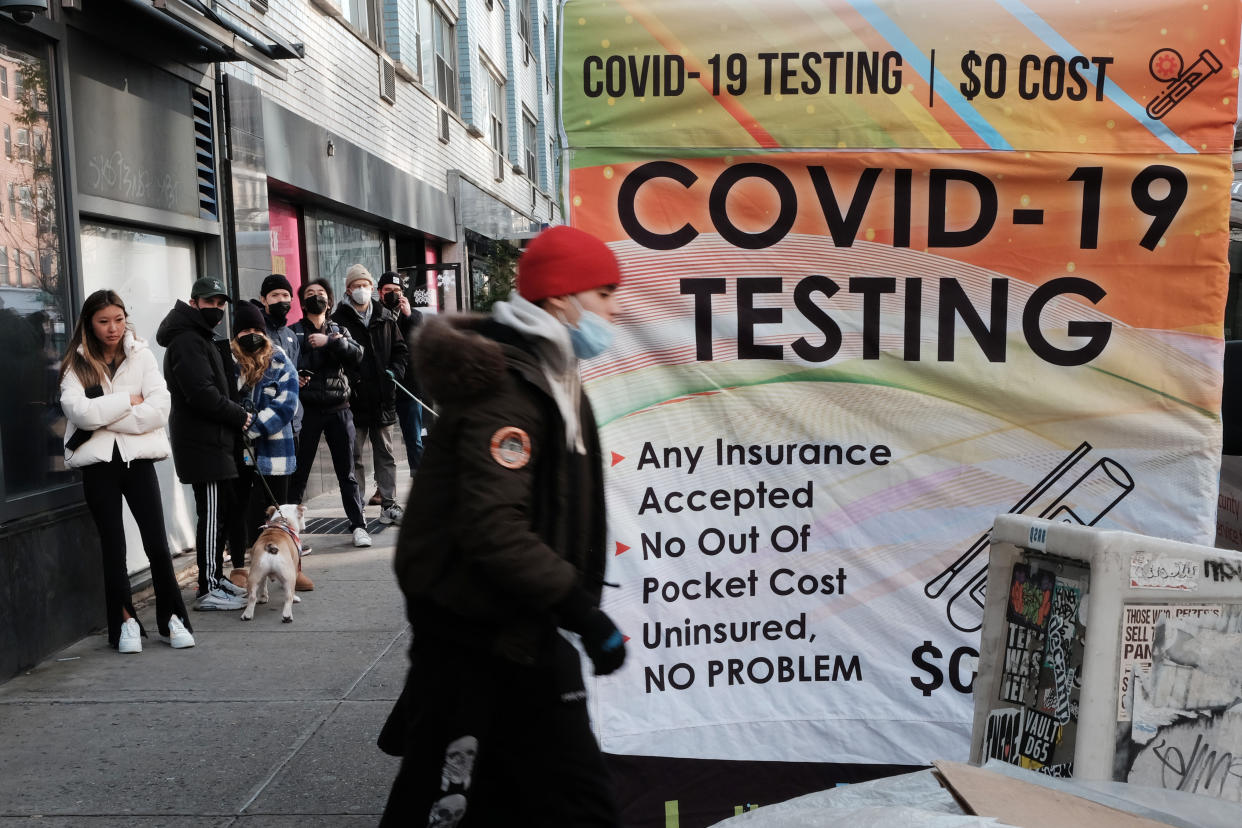Omicron: What we know and don't know so far
Knowledge of Omicron first emerged in late November 2021, and the World Health Organization (WHO) quickly classified the strain of coronavirus as a "Variant of Concern."
Omicron quickly spread across the world and is now the most dominant strain of COVID in the U.S.
Here’s everything we know and do not know about Omicron so far.
Omicron seems milder than Delta but could still overwhelm hospitals
Omicron is a heavily mutated version of coronavirus that appears to be significantly more transmissible than the Delta variant — driven by being somewhat able to evade both vaccination and natural immunity — while seemingly leading to less severe outcomes on average.
"I don’t believe we can contain the spread of Omicron; it’s just too good at [spreading]," Dr. David Katz, a preventative medicine specialist and president of Public Health and True Health Initiative, told Yahoo Finance. "Only extreme isolation from one another would succeed. I believe, however, that owing both to the variant itself — less virulent — and to our now quite prevalent immunity, most infections will be relatively mild."
And while it's unclear how much milder symptoms are due to immunity (from vaccination or natural immunity) compared to the relative severity of the variant itself, a new study out of South Africa found that those infected with the Omicron variant are 80% less likely to need hospitalization than with other strains, and a study in the United Kingdom reported similar findings.
But "you don't need to be quite as deadly if you're infecting as many more people as Omicron is," Dr. Lakshman Swamy, an ICU physician at Cambridge Health Alliance and Boston Medical Center, told Yahoo Finance. "Even if you're less likely, if you're rolling the dice a lot more frequently. I'm still concerned at a population level — but far less so for individual healthy vaccinated and boosted people without risk factors."

Furthermore, despite the encouraging early data, Omicron driving more hospitalizations on top of the expected rise during winter months is still a concern — especially in the U.S.
Dr. Amesh Adalja, a senior scholar at Johns Hopkins Center for Health Security, noted that “for high-risk individuals who are not vaccinated, it’s still going to infect them and be severe enough that hospitalizations are going to increase. And in many parts of the country, pressure is going to be felt on hospitals already reeling with Delta.”
Adalja reiterated that Omicron could still lead to enough hospitalizations to overwhelm already-overworked hospital systems given the variant's higher contagiousness.
“Whether or not it is a degree of magnitude lower than Delta may end up not mattering much because it ends up being more transmissible than Delta,” he told Yahoo Finance.
Swamy stressed that Omicron is occurring at a time when hospitals are already being pushed to the brink by patients of all kinds and a worsening nurse shortage.
"We're already struggling with a worse scenario than we've been in for many previous surges because we've got a lot of sick COVID patients coming into hospitals with ICUs already full of very sick non-COVID patients, and worst of all, many hospitals are facing severe nursing shortages — especially in the ICU," Swamy said. "That is a recipe for the worst crisis in the pandemic yet. We just cannot stretch to replace missing staff, especially ICU nurses. So my concern is that with Omicron spreading so rapidly the proportion of hospitalized and critically ill patients might be low but the absolute number doesn't need to add much to a situation that is already terrible for many of us."
What this means for vaccines and therapeutics
One of the key questions is whether or not current COVID vaccines and existing medicines will be effective against the Omicron variant.
All indications have pointed to yes for vaccines — at least against severe disease and death, which health experts have noted is the main goal of vaccination.
Dr. Adalja of Johns Hopkins noted that breakthrough infections are “going to be very common” even among those who have received their booster shots, especially since "our current vaccines do not produce high levels of antibodies in the nasal passages where the virus infects. The goal of vaccines is not to prevent all infections but to make sure they are mild when they do occur.”
The two strongest vaccines available in the U.S. — from Pfizer (PFE) and Moderna (MRNA) — have been shown to be effective at protecting against serious outcomes when combined with a booster shot. And according to Dr. Anthony Fauci, director of the National Institute of Allergy and Infectious Diseases, boosters should be sufficient at this time.
Vaccination “clearly” doesn’t prevent infection, “although fully vaccination plus booster reduces infection risk by half or more,” said Dr. Katz, the preventative medicine specialist. “What is clear is that prior immunity, and apparently prior immunity by either infection or vaccine, reduces the risk of severe infection tremendously. Accordingly, we should expect a lot of infections, but only a small fraction of them to be severe.”
Dr. Swamy, an ICU physician in Boston, also noted that the emergence of new variants will keep happening until vaccines are distributed around the world more equitably.
“Omicron does have serious implications for the future of the pandemic,” he told Yahoo Finance. “For me, this wipes away any hope of just slowly getting through it. Until we have robust immune protection — with vaccination, boosters, or novel vaccines — at home and across the globe, we’ll keep seeing these variants emerge that always have the potential to be worse than what we’ve dealt with so far.”
In terms of therapeutics, there is more cause for cautious concern: Laboratory testing of Regeneron and an antibody drug from Eli Lilly — two go-to treatments for COVID-19 since they seem to help pre-empt severe disease — suggests that the drugs are not nearly as effective against Omicron.
Omicron-specific drugs can be created, but that will take months.
“We’re certainly going to see hospitalizations rise,” Dr. James Cutrell of the University of Texas Southwestern Medical Center told PBS NewsHour. “If we have a lack of antibodies, that’s certainly going to contribute to that many more patients needing to be in the hospital.”
Should we change our behavior?
Many health experts agree that if you’re fully vaccinated and boosted, you don’t need to change your behavior much.
“Some people’s risk tolerance may prompt them to change their behavior, but I think they can be assured they are protected against what matters: serious disease,” Adalja said. “For the unvaccinated, they should get vaccinated. COVID-19 is never going away, and people have to learn how to risk calculating the world in which this virus is present.”
Katz suggested focusing “more extreme” protections on the highly vulnerable parts of the population.
“This is still a very sizable population, but it is a whole lot less than everyone,” he said. “Among the many more for whom this is apt to be something much like a cold, my personal view is to treat it as we would any other virus causing colds. That does mean taking reasonable precautions to limit spread — distancing, hand washing, covering nose and mouth, staying home when acutely ill, but it does not involve heavy-handed public policies.”

He also conceded that general spread of the virus cannot be curtailed at this point absent extreme containment measures by the government, though he acknowledged that such measures wouldn’t be tolerated by the general public.
“All we know reliably at this point is that it is spreading like proverbial wildfire,” Katz said.
Dr. Howie Forman, a professor at the Yale School of Public Health, suggested that considerate members of society can somewhat moderate behavior to help reduce transmission.
“This is all about decision-making under uncertainty and balancing personal interests against community interests,” Forman told Yahoo Finance. “I have stated publicly and will state again: Reduce your discretionary activities. That does not mean you cancel everything. But if there is a small dinner or party that you absolutely don’t need to go to, then cancel it and spare the risk. Same for masking — wear masks and higher-quality masks more often now.”

Additionally, increasing testing will help make individuals aware if they are carrying the virus and prevent them from spreading it to others. President Biden announced this week that his administration would be providing 500 million free at-home COVID tests to Americans across the country.
“I think the Biden plan will have an impact, but its results will not be felt until the New Year,” Adalja said. “Having ubiquitous home tests that can be used to gauge people’s contagiousness would really allow people to go about their life in a way that minimizes interruptions from COVID. Testing is a way to reduce the harm the virus causes and allow us to navigate the world in which COVID-19 is an ever-present threat.”
Adriana Belmonte is a reporter and editor covering politics and health care policy for Yahoo Finance. You can follow her on Twitter @adrianambells and reach her at adriana@yahoofinance.com.
Read the latest financial and business news from Yahoo Finance
Follow Yahoo Finance on Twitter, Instagram, YouTube, Facebook, Flipboard, and LinkedIn
